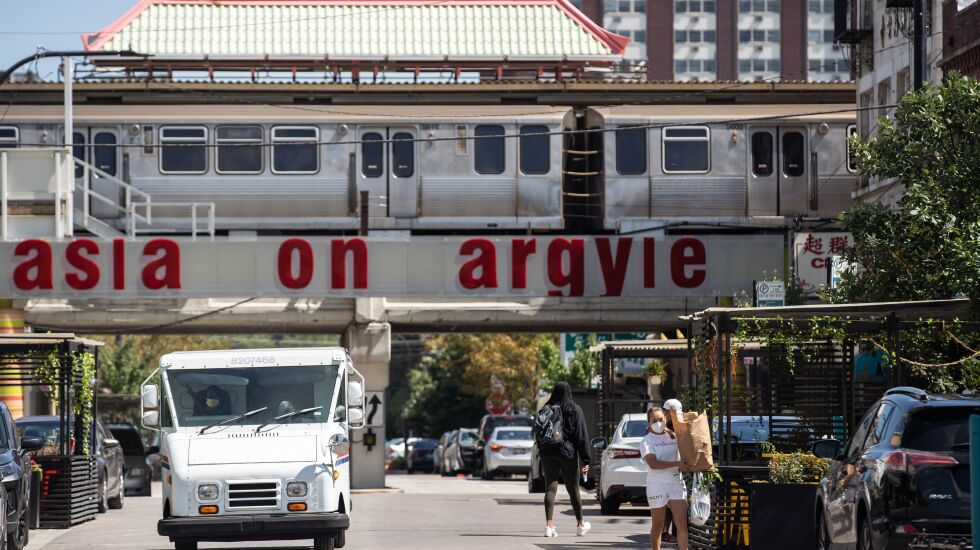
When Patricia Nguyen walks along Argyle Street, she sees signs of second-generation Asian immigrants carrying on their family’s legacy, opening coffee shops or other small businesses.
But she also sees signs of a struggle — residents priced out of apartments and homeless encampments sprouting not far from this pocket of Chicago’s Uptown community, which had served as a refuge for immigrants from China, Vietnam and other Southeast Asian nations.
A longtime organization that served refugees recently moved farther west as luxury apartments pop up near Argyle Street.
The clash between growing prosperity in the area and the need to still provide homes for the many immigrants who have lived through wars in their home countries is one of Nguyen’s chief concerns.
“How do we really address those two things together and actually be able to support the livelihood of those who have already been through so much?” she said.
The area, which is sometimes called “Asia on Argyle,” stretches along Argyle Street between North Broadway and Sheridan Road.
Weeks before Election Day, the only campaign signs are those left over from the June primary for an Illinois House race.
But don’t mistake the lack of campaign paraphernalia for a lack of issues on residents’ minds.
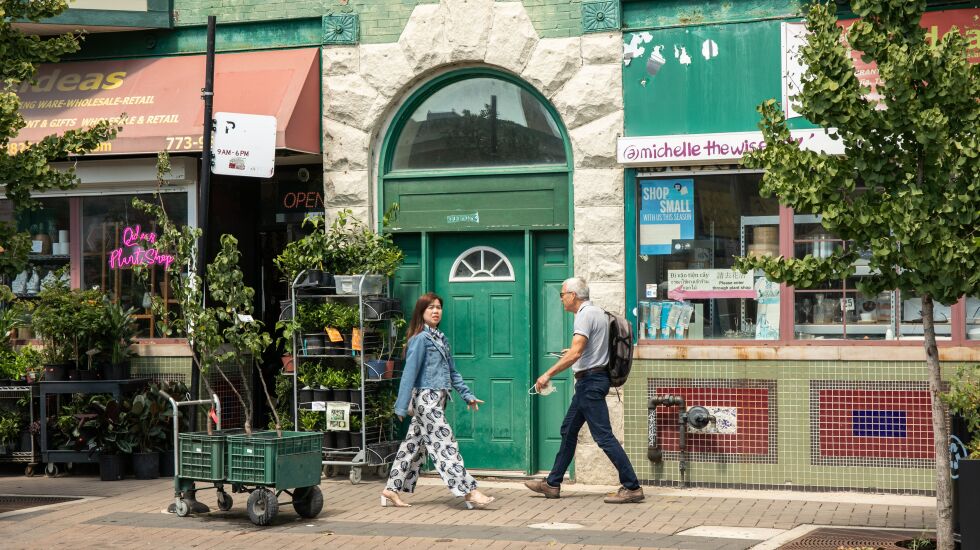
Housing and gentrification, crime and public safety, neighborhood transportation, resources for immigrants and electing more candidates who look like them are some of the top issues many who live in the area or who still have strong ties to Argyle Street are weighing as they prepare to head to the ballot box in November.
During the summer, housing activists about a mile away lodged a protest to spotlight the need for affordable housing by taking over a parking lot where a high-rise building will be built.
Abe Recile, who lives a few blocks from Argyle Street, said he’s worried about gentrification. In August, he spent an evening at a night market that brings vendors and musicians to the street.
“I’d like to see more diversity in the shops in this neighborhood, not gentrified,” Recile said.
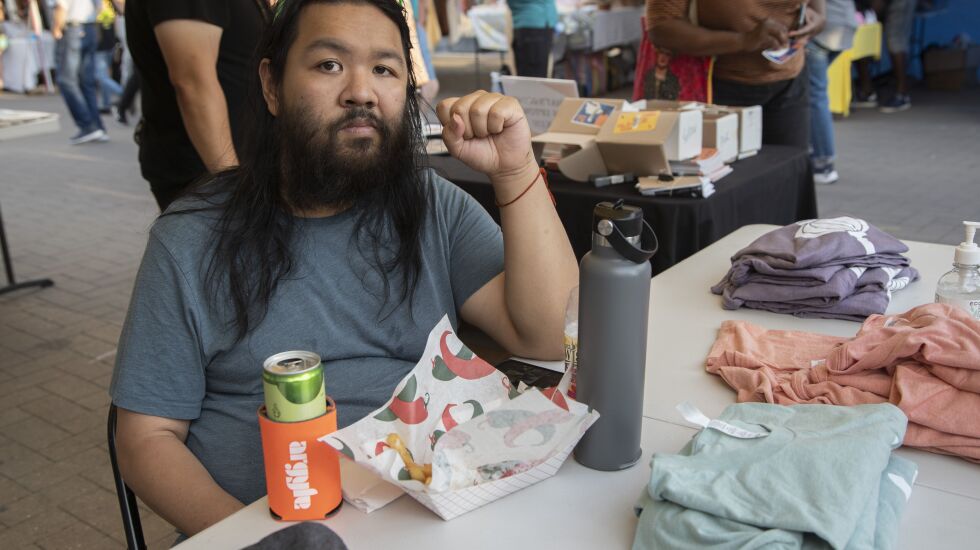
Argyle Street was once poised to become the Chinatown for Chicago’s North Side. Over time, that vision broadened to include the influx of refugees coming from Vietnam, the Philippines and other Asian nations who were remaking the area, said Tam Van Nguyen, a longtime leader in the community and Patricia Nguyen’s father.
The elder Nguyen can often be seen walking in the area wearing a bright blue and yellow vest that states, “How can I help?” He’s also depicted in a mural that chronicles the neighborhood’s history.
Silent movie era fades to chorus of new voices
Around the 1880s, the area was part of Argyle Park, a lakefront suburb that a developer named to pay homage to his mother’s Scottish birthplace, according to the National Register of Historic Places.
In the early 20th century, the neighborhood served as the backdrop for some of the first movies. Essanay Studios stood in the 1300 block of West Argyle Street. Charlie Chaplin filmed one of his silent comedies there before tiring of Chicago and its weather and departing for California.
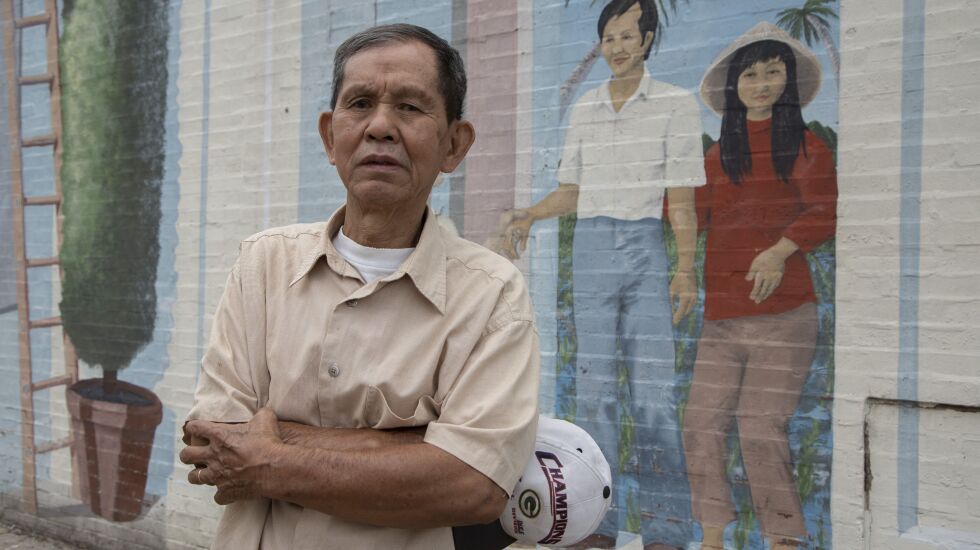
More than a century later, 6,182 residents in Uptown identified as Asian, according to a Chicago Sun-Times analysis of 2020 Census data. That’s a decrease from 2000 when more than 8,000 residents identified as Asian.
Asians make up the fourth largest racial or ethnic group in the community area, which is home to more than 57,180 residents, according to the newspaper’s analysis. A little under 30,000 Uptown residents identified as white, 10,800 as Black and 7,590 as Hispanic that same year.
Argyle Street is part of the city’s 48th Ward, where about 87% of voters supported Democratic nominee Joe Biden in the 2020 presidential election, compared to about 11% who voted to reelect Republican President Donald Trump.
Community leaders are working to increase voter participation.
Tam Van Nguyen once sent out a newsletter to inform people about how to vote. Language barriers and time constraints from running small businesses often complicate the task of getting residents civically engaged and informed about candidates and elections.
“Maybe the second generation of the Vietnamese people may understand more about” elections and become more involved “directly in the political parties,” he said.
Indeed, Asian Americans are on pace to become the fastest growing segment of eligible voters among the nation’s major racial and ethnic groups, according to a 2020 Pew Research Center report.
Here in Illinois, at least 22 Asian American candidates are running for offices in the November election and next year’s city elections.
‘Keep the diversity and culture alive’
Jennifer Pham, who many know as “Nuky,” got involved in her family’s longtime business, Mini Tx Pharmacy, as her parents grew older. It prompted her to reexamine what Argyle Street meant to her, and she’s since worked to cultivate a sense of community, though some people who once called the area home now live further away.
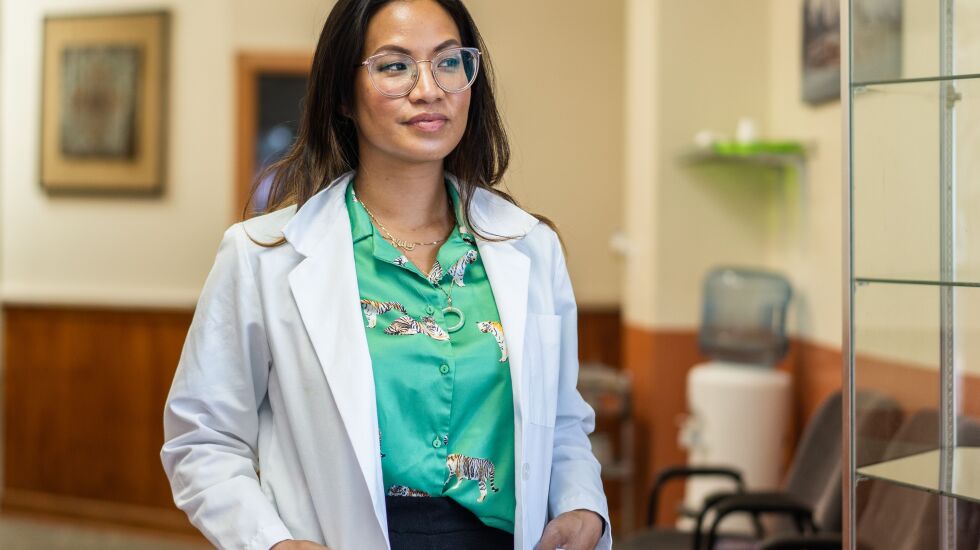
“The area is changing, and I want the people that are not only from here but the people that come here to know that this area exists because of the people in it and the history and the culture that has existed here for so long,” Pham said.
She was part of a group that launched “Celebrate Argyle,” which was meant to help drum up business for area merchants during the coronavirus pandemic and to combat hate against Asians that rose during that time. Hoan Huynh, who won a contested Democratic primary for an Illinois House district, was also part of the group.
Pham, like others in the community, says public safety is an important issue. But she would like to see more resources for individuals in crisis, such as improved mental health services. She would also like to see more Asian Americans running for office.
“Someone to truly care for the area, the people that live there,” Pham said. “I don’t want any more luxury buildings going up. I want someone to help keep the diversity and culture alive in the neighborhood.”
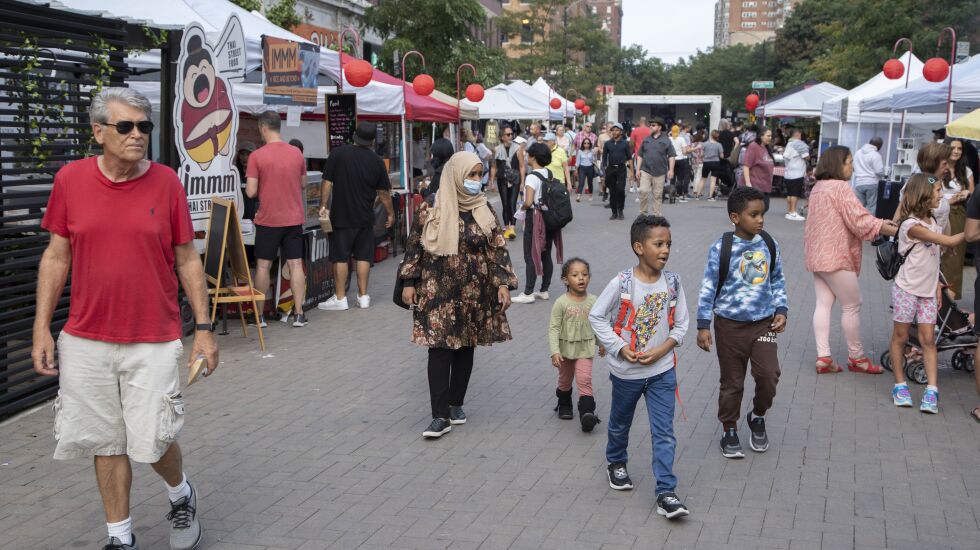
Rent prices have increased by about 15% over the last year, according to a data analysis from Zumper. The median monthly rent for a 1-bedroom in Uptown is $1,495, and the majority of residents are renters, according to Zumper.
Developers have been eyeing the area, especially as the Chicago Transit Authority makes repairs to the Red Line, which cuts through Argyle Street, said Dennis Mondero, executive director of the Chinese Mutual Aid Association.
“A lot of the immigrant community is having to move further north to like Rogers Park, further northwest to like West Ridge, which are also great communities,” he said. “But West Ridge, for example, is not off a train line, so when you are an immigrant family, mom and dad, if they are trying to get to the good paying jobs in the Loop, they can’t just take one train.”
‘Represent my voice’
Ross Guthrie, 42, who lives near Argyle Street, said affordable housing is one of the big issues for residents because buildings that once housed two or three units are being redeveloped as single-family homes.
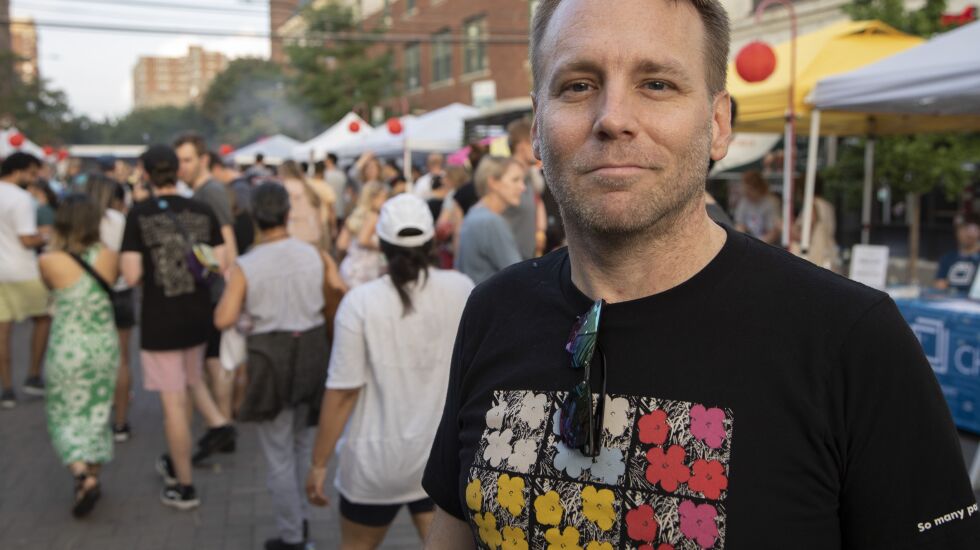
Guthrie said he would like to see more efforts to improve travel for pedestrians and cyclists, such as what has already been done to Argyle Street.
“I think working on bike lanes, just understanding that it’s not just about motorists, but it’s about a little bit of everybody — cyclists, pedestrians, motorists,” Guthrie said. “We have to look at it holistically with everybody in mind.”
Elbert Briggs, 70, who has lived steps away from Argyle Street for about a decade, said he’s more focused on next year’s municipal elections than the November election.
“At the state level in politics, I think we are in great shape,” Briggs said. “My problem is at the mayoral office. I think [Gov. J.B.] Pritzker, whether you like his politics or not, it don’t matter. He’s really doing the best for the state.”
Although the area does not see many shootings, Briggs worries about crime and whether enough is being done to keep those charged with violent crimes in jail pending the outcome of criminal cases. He would like to see more programs aimed at helping those recently released from prison.
He also wants elected officials, especially on the municipal level, to do more to bring people in Chicago together.
“Overall, it’s a beautiful neighborhood,” Briggs said. “It just seems that sometimes each group is out for their interest, not the interest of the whole.”
Ola Willis, 83, lives in a senior building near Argyle Street, and likes how walkable the neighborhood is to grab groceries or other necessities. Like others, she has concerns about crime, not just in Uptown but throughout Chicago.
“You really have to address the issue about having enough programs to draw kids in rather than pushing them,” Willis said.
Thanh Vinh La, who lives west of Uptown, became a naturalized citizen last year with the help of the Chinese Mutual Aid Association, a longtime community organization on Argyle Street.
As La, who will turn 46 this week, gets ready to vote in his first general election, he said he’s looking at which candidates will broaden access to health care and help immigrants such as himself.
“I want someone to help the community, help immigrants like me,” La said. “Represent my voice.”
Elvia Malagón’s reporting on social justice and income inequality is made possible by a grant from The Chicago Community Trust.







